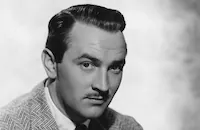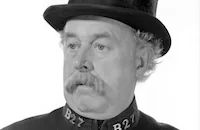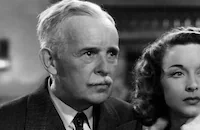Three Hearts for Julia

Brief Synopsis
Cast & Crew
Richard Thorpe
Ann Sothern
Melvyn Douglas
Lee Bowman
Richard Ainley
Felix Bressart
Film Details
Technical Specs

Synopsis
In the summer of 1941, Lisbon-based foreign correspondent Jeff Seabrook, who has been away from home for two years, turns down a job to head the Berlin bureau of his newspaper, in the hope that he and his wife Julia can spend more time together. In New York, Julia, who is a concert violinist in an all-female orchestra, has a hard time concentrating on her work because she has filed for divorce and is nervous about letting Jeff know. When Jeff learns about the impending divorce, he goes to their home to effect a reconciliation, but finds that several of Julia's fellow musicians are houseguests and hence they have no time to be alone. Soon Jeff learns that Julia, who is fed up with his long absences and broken promises, is being pursued by two men, the orchestra's manager, David Torrance, and music critic Philip Barrows. Jeff's boss, Johnny Girard, convinces him that the best way to win Julia back is to pretend to go along with the divorce, and to prove his acceptance, Jeff tells her that he will help her select his successor. Despite his pretense, Jeff finds every opportunity to pit David and Philip against each other so that he can win Julia back. Meanwhile, the orchestra works hard with its new conductor, refugee Anton Ottoway, who is chagrined to find that he is reduced to dealing with an all-female orchestra. One afternoon, Jeff picks Julia up at the concert hall, ostensibly to drive her to their lawyer's office, but instead "kidnaps" her and takes her to a country retreat where she can think things over. The next morning, Jeff gets word that he is being called up for active duty in the Army, but does not tell Julia. While Jeff is outside, Julia finds the cabin's hidden telephone and calls Philip to come and get her. When Philip arrives, he sees Julia's slippers in Jeff's room and assumes the worst, not knowing that she had actually thrown them at Jeff the night before. Now even more angry at Jeff, Julia goes through with the divorce and stops seeing Philip. On the day that they are to sign the final divorce papers, Jeff goes to see Julia at the concert hall, and they argue, then passionately kiss. Julia still will not take him back, and he leaves without telling her that he is going into the Army the next day. After the concert, Ottoway goes to a local bar to unload his troubles with the female musicians and meets Jeff, whom he immediately likes. After they play a duet on a saw, Ottoway takes an intoxicated Jeff to his place to spend the night. The next morning, as Jeff leaves for active duty, he tells Ottoway that he will be staying with "his uncle" at Fort McHenry. When Ottoway later learns what Jeff meant, he determines to help reunite him with Julia. After hearing that the USO is seeking musicians, Ottoway insists on taking the orchestra on tour and arranges for them to stop at Fort McHenry when he learns that David and Julia plan to marry at the end of the tour. Just before the performance at Fort McHenry, Julia confides in Ottoway, and he tells her that she is still in love with Jeff. She takes his advice to see Jeff, but learns from his commanding officer that it is impossible because Jeff is leaving the next day for overseas. As the concert is about to begin, Julia argues with David over playing what he considers "low-brow" music and breaks off her engagement. During the concert, Julia spontaneously bursts into a solo of "I've Been Working on the Railroad" as Jeff, who is in the wings, happily blows kisses to her.

Director

Richard Thorpe
Cast

Ann Sothern

Melvyn Douglas

Lee Bowman

Richard Ainley

Felix Bressart
Marta Linden

Reginald Owen
Marietta Canty
Frank Faylen
Chester Clute
Dick Elliott

Russell Hicks
Robert Greig

Jacqueline White

Kay Medford

Ann Richards
Elvia Allman
Charles Latorre
Marek Windheim
Bill Lally
William Tannen
Rudolph Cameron
Hooper Atchley
Art Belasco
George Lollier
Anthony Warde
Estelle Etterre
Dick Rich
Oscar O'shea
Phyllis Cook

Joe Yule
Fred Rapport
Bill Dill
Leigh Sterling
Michael Butler
Cliff Danielson
Bert Hicks
Ernie Alexander

James Davis
Russell Gleason
Max Willenz
Nell Craig

Howard Hickman
James Warren
Hans Von Morhart
John Van Eyck
Curt Furberg
Nicholas Vehr
Jack Deery
Dick Wessel
Mary Field
Aileen Haley
Eve Whitney

Marie Windsor
Mary Benoit
Natalie Draper
Crew
Howard Campbell
Tom Conlon
John W. Considine Jr.
Helen Conway
George Folsey
Cedric Gibbons
Lionel Houser
Irene
Douglas Shearer
Bert Spurlin
Herbert Stothart
Irvine Warburton
Edwin B. Willis

Film Details
Technical Specs

Articles
Three Hearts for Julia
Directed by Richard Thorpe (replacing Edward Buzzell, who became ill and had to bow out of the project), and with a script by Lionel Houser, based on his original story, Three Hearts for Julia went into production on the Metro-Goldwyn-Mayer lot on September 4, 1942 and wrapped a brief five weeks later, on October 17th. Although the plot was completely unrealistic, Thorpe injected one bit of truth into the script, courtesy of bit player Eddie Sanders. Sanders had one line in the film, in which he says "Okay, Miss, I'm joining the navy Monday." Right before they shot, Sanders asked Thorpe if he could change it to "Okay, Miss, I'm joining the army Friday." The Friday after the line was shot, Sanders left Hollywood and joined the army.
The film was held back from release by MGM until 1943, supposedly due to a backlog of titles, but most likely because they knew they had a dud on their hands. From the critics' reaction, it was clear that Three Hearts for Julia wasn't going to be a boost for anyone's career. Variety wrote that Ann Sothern was "handicapped with the material provided," The New York Times film critic Bosley Crowther noted with impatience that Melvyn Douglas' role of the husband winning back his wife was becoming repetitive, and Harold Cohen, in his very funny but devastating review for the Pittsburgh Post-Gazette, wrote that the script "looks and sounds like something [Lionel Houser] cooked up over an opium oven." Cohen deplored the romantic foursome, writing "Mix said quadrangle with some barren comedy, the kind of direction that makes membership in the Screen Directors Guild a questionable honor and a series of performances right out of Stanislavsky, spelled Stanislouseky, and you have Three Hearts for Julia. And this corner doesn't have to tell you what you can do with it."
SOURCES:
http://www.afi.com/members/catalog/DetailView.aspx?s=&Movie=724
Cohen, Harold V. "Three Hearts for Julia at the Stanley" Pittsburgh Post-Gazette 6 Feb 43
Crowther, Bosley "The Screen: Three Hearts for Julia" The New York Times 21 May 43
The Internet Movie Database
"Stickler for Realism" Pittsburgh Post-Gazette 18 Sep 42
http://www.tcm.com/mediaroom/video/139404/Three-Hearts-for-Julia-Original-Trailer-.html
Variety "Three Hearts for Julia" 6 Jan 43
By Lorraine LoBianco

Three Hearts for Julia
Quotes
Trivia
Notes
According to news items in Hollywood Reporter, the film was originally scheduled to be directed by Edward Buzzell, who became ill and was replaced by Richard Thorpe. A September 22, 1942 news item includes Dink Trout in the cast, but his appearance in the released film has not been confirmed. Another Hollywood Reporter news item noted that Electra Simonini was to "strum the harp" as a member of the all-female orchestra, but it is unclear whether she was to be in the cast or provide harp music for the off-screen orchestra. No other contemporary sources include her in the film's credits. Three Hearts for Julia was one of several M-G-M films that were backlogged in late 1942 and May not have been shown throughout the country until early 1943.















